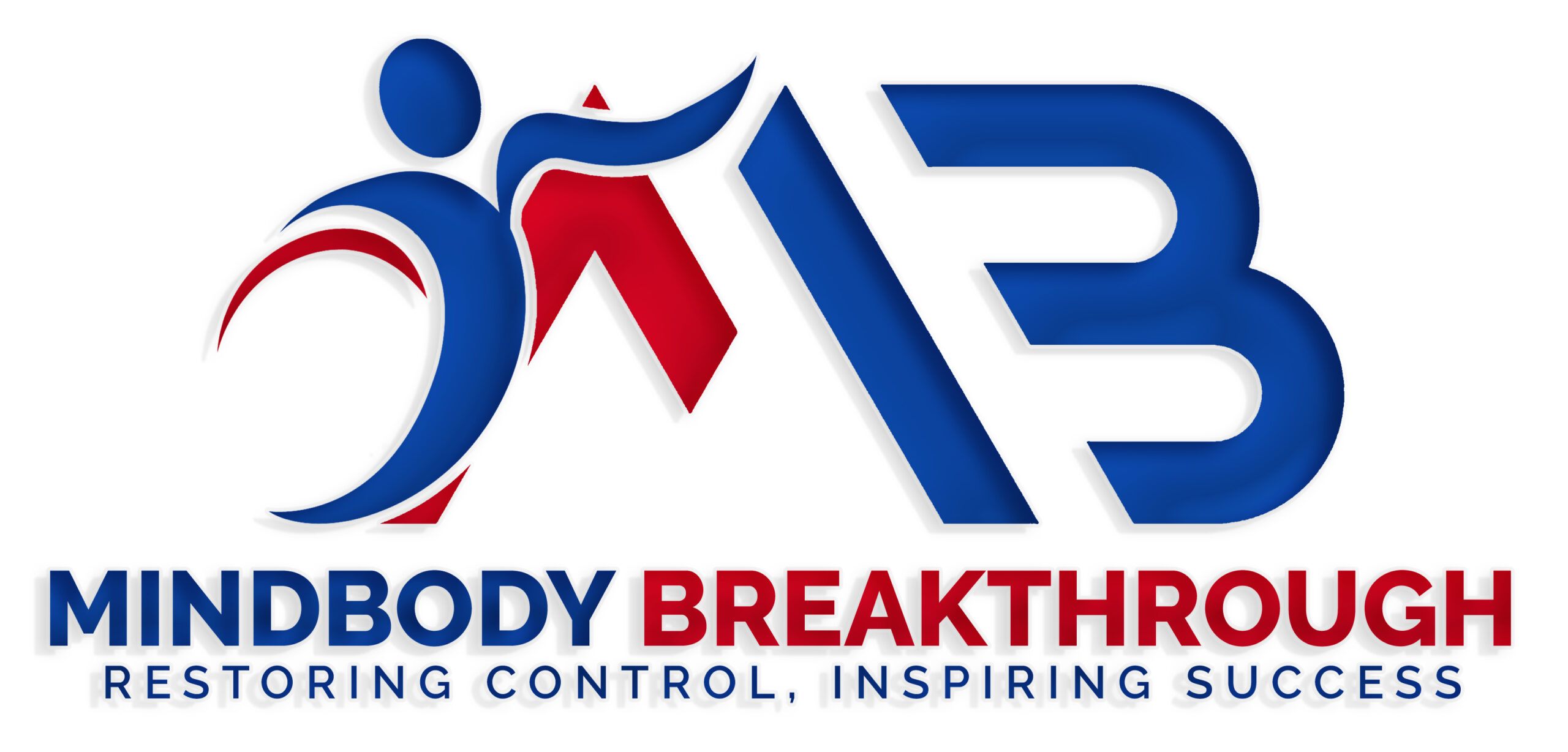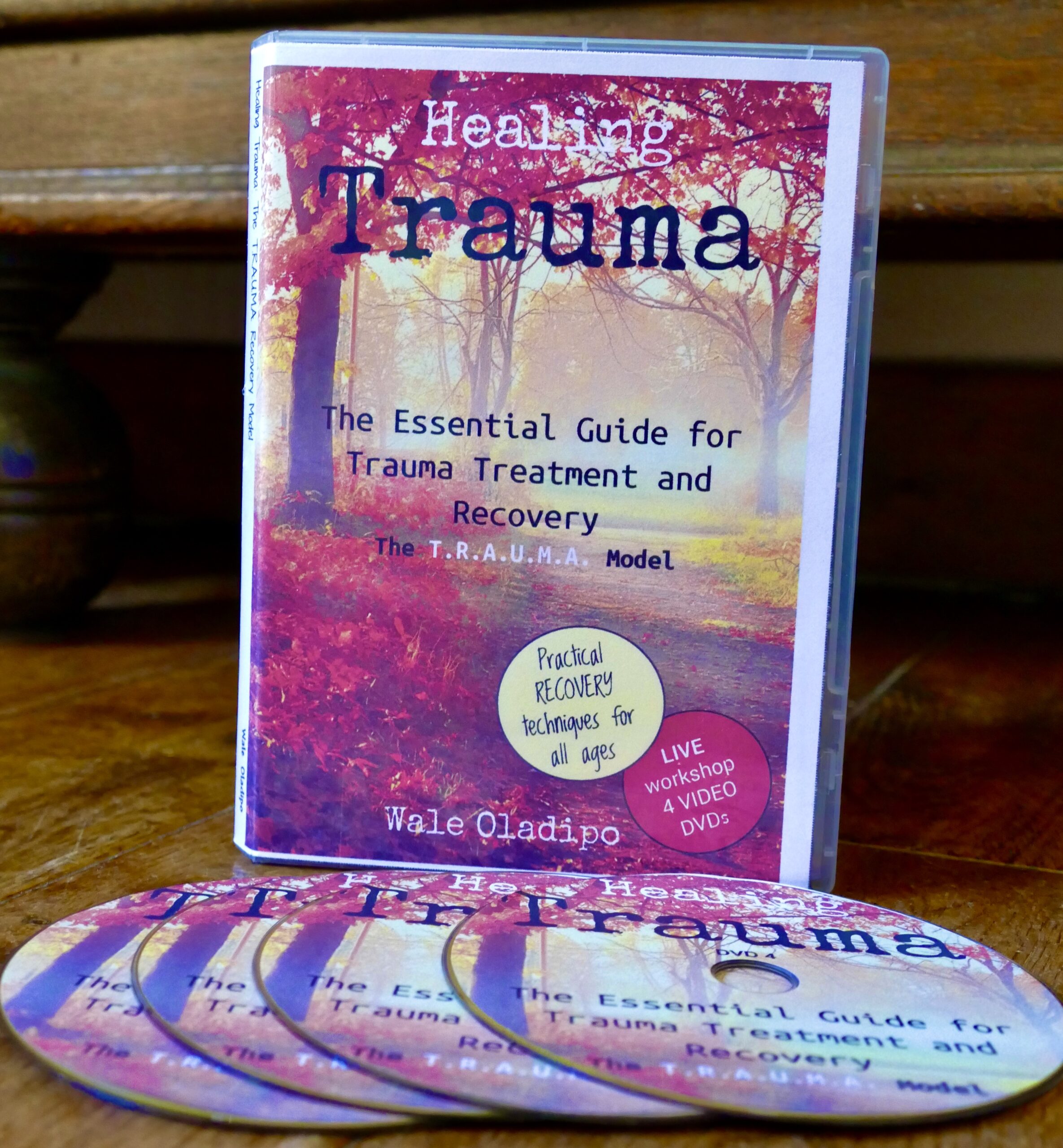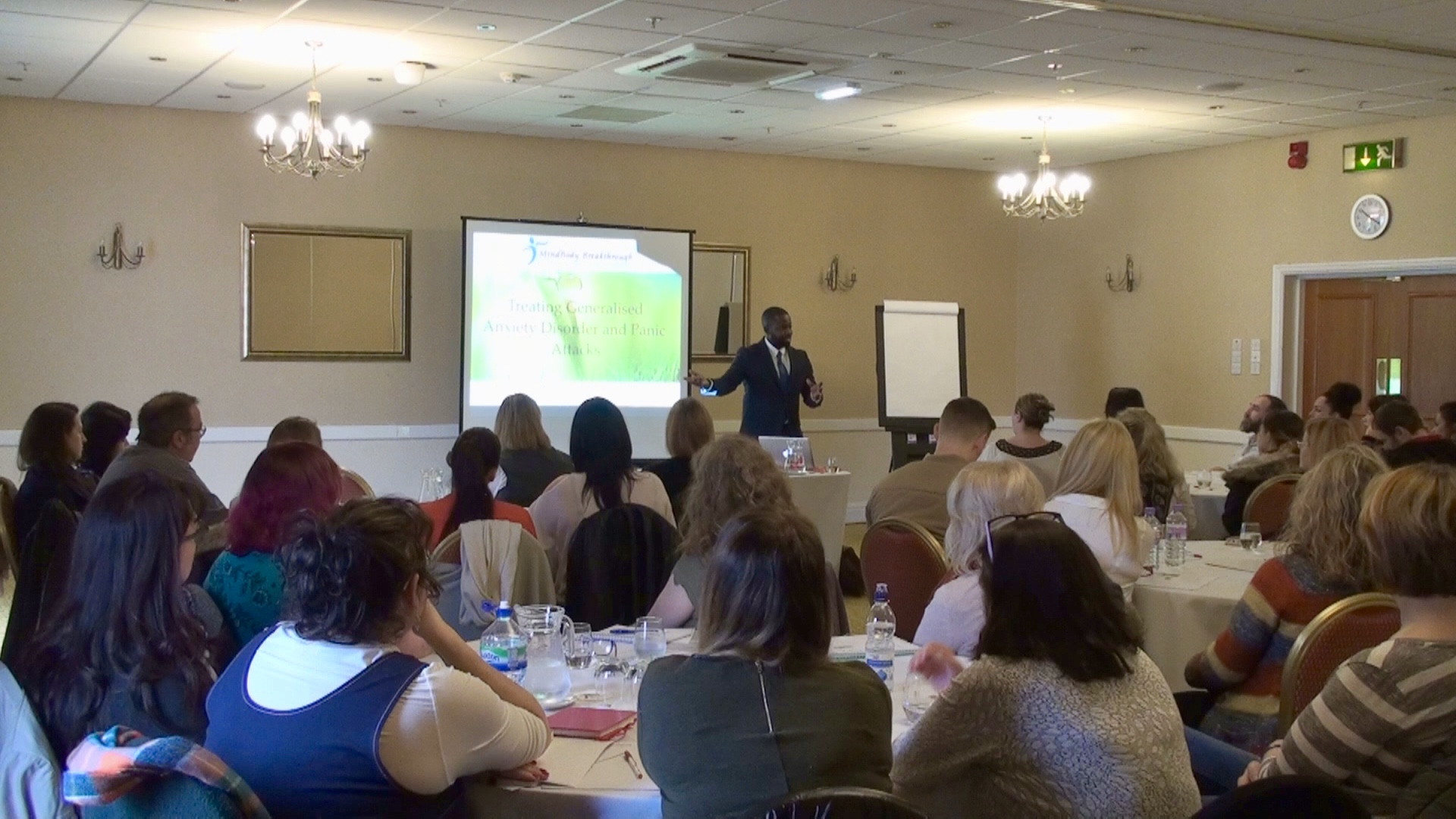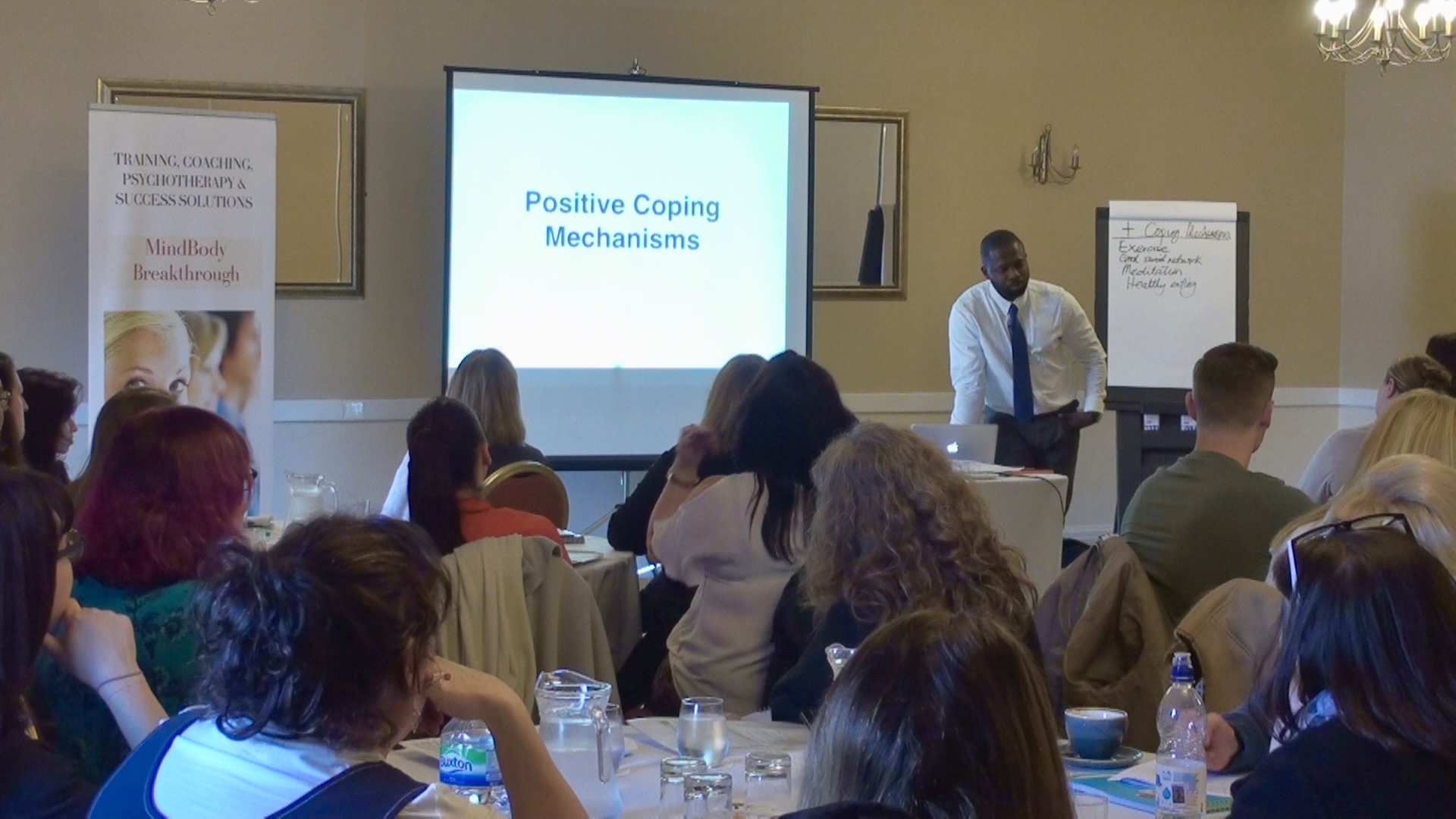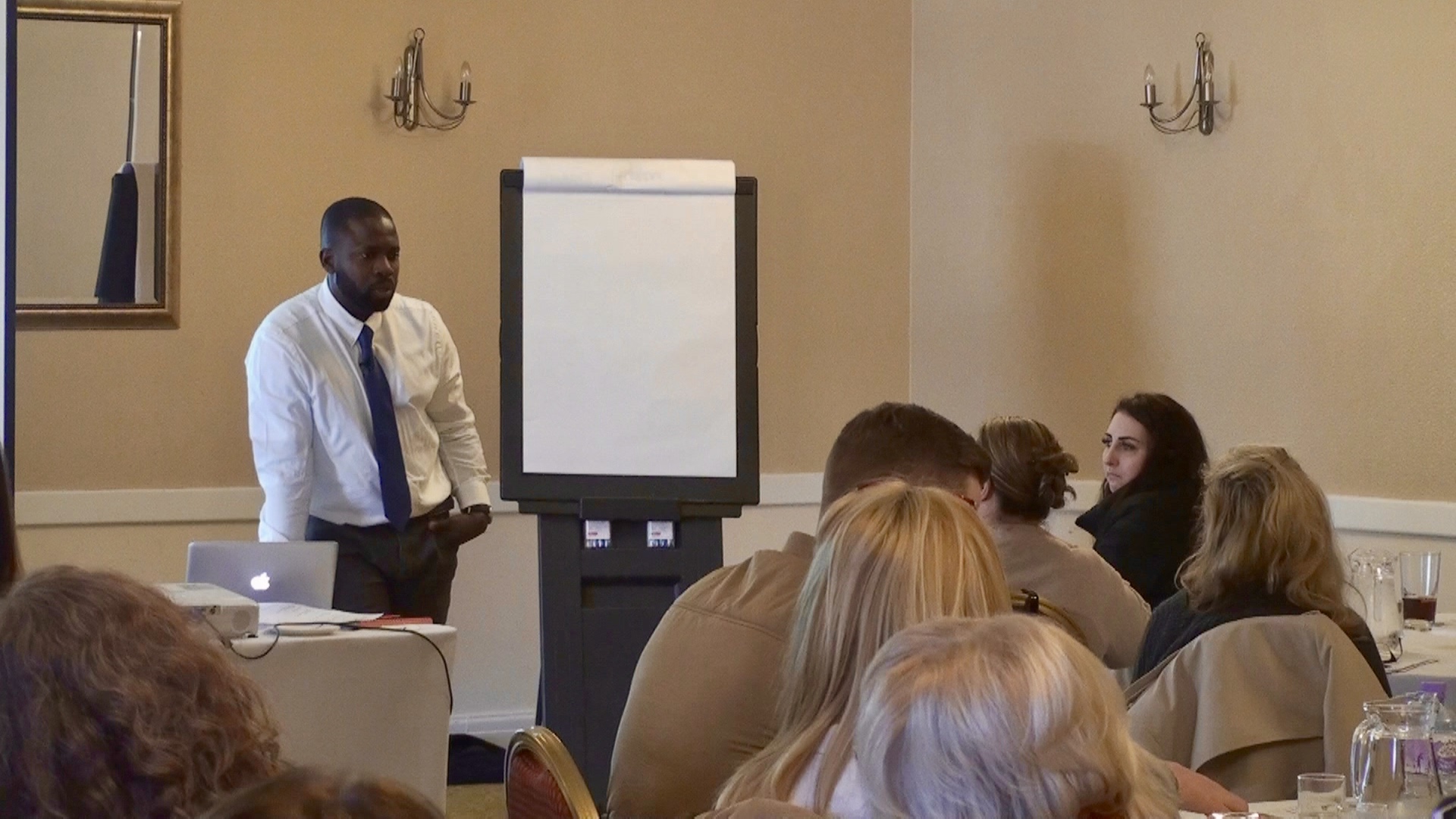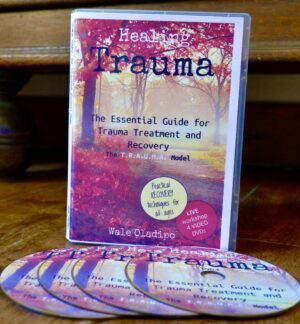“I was sceptical about whether I would fully enjoy the online course and whether it would be interactive in a way I would find engaging. I was very happy with every bit of it. The information was excellent and presented in an understandable way, with plenty of breaks to process. Wale was a fantastic tutor who was interesting and interacted with us all through the chat box. There was even conversation amongst attendees. I would fully recommend to anyone who would like to obtain this information. For me personally I prefer this format in lots of ways for convenience and ease.” Holly W., Trauma Survivor
“Thank you very much for your excellent workshop on trauma on Saturday. As both a sufferer and a practitioner looking to assist others in navigating trauma, I am so grateful for the knowledge you have given me!” Maire R.
“I really enjoyed the experience, even though initially I thought it would be too difficult having my family at home at the same time. The length and frequency of breaks was great and made listening and learning, as well as checking in with the family possible. I very much related to the content of the course, working as a counsellor and psychotherapist is a solitary and private experience, what we do in a room is very individual and unique, however I was surprised and pleased to hear Wale’s framework explained so well, as it solidified and made clearer the way I work instinctively. His holistic approach makes a great deal of sense to me. I learnt a great deal too and enjoyed the first session on how the brain functions and also the focusing mediation, which I think will be very useful for me to share with some of my clients.” Lisa K. Counsellor & Psychotherapist
“The webinar was very good, very relevant to my working with clients suffering catastrophic injuries dealing with trauma.” Caroline T.
“It was incredibly enlightening and the meditations are very powerful.” Catherine H.
“I enjoyed the course and would recommend it to others wanting to learn more about trauma. Wale is very knowledgeable about the subject.” Kate R.
“I think this course was very helpful in many ways. I have been aware of the link between trauma and physical responses in the body and this course really helped me understand many components of this in much more detail, as well as giving me resources for further research and reading. It’s great that we have access to the meditations for all the somatic re-negotiation exercises. All the information was laid out well and easy to digest. The pacing of the day was well done too, and Wale is a great teacher. I know I will be able to use this in my work with clients with trauma histories, and would recommend it to others.” Eva V., Occupational Therapist
“I have just watched the video and written copious notes. It was really good to learn something new. Sometimes I do not think that I learn things on other courses or think that I can do a better job, but the Trauma course was excellent. Thanks.” Emma S. Employment Support Worker
“Really enjoyed the course, it has been very informative and I have been able to take a lot away to enrich my practice.” C. March., Counsellor
“Really good handouts and excellent delivery of the webinar. The webinar was done in manageable size chunks with good breaks in between sessions. The information is very good and informative. Wale delivers with excellent knowledge and you can see his passion for the subject. I really enjoyed it and would highly recommend. I will be looking at attending other courses.” Paula B. Complementary Therapist
“Thank you for the very informative course on Trauma, the brain and recovery. I found the analogy you used to describe the brain as an organisation and how each department is intrinsically linked really helpful.” Alison R.
“I have completed the workshop on Treating Trauma and found it to be extremely informative and a really beneficial training course. I would like to express my gratitude for the Webinar being available for 7 days following the live workshop last Saturday as I have been able to complete it all. Thank you also for the extra resources provided particularly the somatic re-negotiation exercises.” Lucy K.
“The webinar was easy to access and follow, our tutor Wale was friendly, easy to follow and explained the subject of Trauma and the brain in a clear and accessible way. Plenty of breaks allowed time for questions and well deserved cuppa’s. I gained a lot of knowledge and understanding from this online training day (in the comfort of my own home!)” Catherine M.
“It was a good introduction into understanding ‘Trauma’. I thoroughly enjoyed it. The trainer made the material presented easier to understand. The course was very good and I would recommend it others.” Rochelle R., Creative Arts Therapist
“I really enjoyed it and found Wale informative, knowledgeable and engaging.” Sonia J., CAMHS Worker
“It was very interesting and something I wish I had found years ago to help my son with his recovery. I will be back to do some more courses.” Angela D.
“I will certainly be looking at other courses. This was very helpful and informative and I am walking away with skills that I may be able to implement with my clients.” Marcia S. Nutritional Therapist
“The webinar was very good, very relevant to my working with clients suffering catastrophic injuries dealing with trauma.” Caroline T.
“It was incredibly enlightening and the meditations are very powerful.” Catherine H.
“I enjoyed the course and would recommend it to others wanting to learn more about trauma. Wale is very knowledgeable about the subject.” Kate R.
“Thank you very much for your excellent workshop on trauma on Saturday. As both a sufferer and a practitioner looking to assist others in navigating trauma, I am so grateful for the knowledge you have given me!” Maire R.
“I really enjoyed this course, I got so much from it. Wale certainly knows what he is talking about and can communicate it so well. I will look forward to future CPD’s with you. It was brilliant and I have got so much from it, will need time to process it and go over my hand out.” Sarah-Jayne A., Counsellor
“I have really enjoyed learning about Trauma today and will use my new knowledge to have a better understanding whilst working with my clients. I do feel that I will have to read more about this and go over techniques in order to be prepared more especially around some of the inner child work. I would really be interested in learning the next follow on course from this PTSD.” Nicola J. Ongo Talk Manager / Integrative Counsellor
“Got the information about the links and handout well in advance. The handout was very detailed about the different sessions and the information which was included. The webinar went well, very clear to understand. I think it will really help me to understand my clients more and some of the behaviours they have, also would be very useful personally. Looking forward to do another course similar in the future.” Catherine D., Mental health paralegal and law student
“I have just finished the trauma Webinar and I wanted to thank you for such helpful insight and a renewed sense of hope. I have experienced trauma through the loss of my brother in law in a car accident, multiple miscarriages and now I am currently trying to help my brother who has and still is experiencing domestic abuse. I run retreat days for those who have lost babies, I am a teacher developing my pastoral response to children who have experienced trauma and I lead a church with a deep desire to stand with people in their darkest times.” Hannah H.
“I attended a fantastic trauma workshop conducted live online, by Wale Oladipo. I really enjoyed this- i didn’t know if I would spend the day in front of the computer but actually i couldn’t walk away from it. It was brilliant.” Emily K.
“I have considered a lot of things about this training and the way it worked for me personally was actually fantastic. I am an individual who chose to pay for myself and a co-worker out of my own money not a work budget which I would never normally do but after reading about what was on offer felt it massively beneficial. I was extremely worried about attending a Zoom course and learning this way because I have severely bad dyslexia and really struggle a lot in a learning situation but I found it so useful to me and it enhanced my ability to learn and take in the information better than I could have thought it would.” Thank You Ant W.
“I just wanted to thank you for the webinar on 1st April, it was full of interesting information that will be invaluable for me in terms of understanding and working with my client group as a therapist.” Heather W., Therapist
“Got the information about the links and handout well in advance. The handout was very detailed about the different sessions and the information which was included. The webinar went well, very clear to understand. I think it will really help me to understand my clients more and some of the behaviours they have, also would be very useful personally. Looking forward to do another course similar in the future.” Catherine D., Mental health paralegal and law student
“I have just finished the trauma Webinar and I wanted to thank you for such helpful insight and a renewed sense of hope. I have experienced trauma through the loss of my brother in law in a car accident, multiple miscarriages and now I am currently trying to help my brother who has and still is experiencing domestic abuse. I run retreat days for those who have lost babies, I am a teacher developing my pastoral response to children who have experienced trauma and I lead a church with a deep desire to stand with people in their darkest times.” Hannah H.
“I attended a fantastic trauma workshop conducted live online, by Wale Oladipo. I really enjoyed this- i didn’t know if i would spend the day in front of the computer but actually i couldn’t walk away from it. It was brilliant.” Emily K.
“I just wanted to say thank you so much for the very informative course that was held yesterday on trauma, the brain and recovery. It was very interesting and will be super useful to apply the knowledge to the people I work with as well as the general service! At the start of the course I was sceptical about it by over Zoom. However, it worked really well and it was great to be able to still interact with everyone, even over a chat!” Amelia E. Assistant Psychologist
“Despite my reservation about the workshop being delivered on-line, it actually worked well. Wale knew his technology so that was effective and he used the chat function to engage us. It was very useful having the slides in advance.
I’ve really enjoyed the workshop, I’ve learnt a huge amount. The way Wale used the business/org analogy to describe the PFC and other parts of the brain was really helpful! Thank you.” Helen P.
“I attended today’s day-long Trauma workshop, led by Wale, by webinar. The course was originally supposed to have been held at a venue, but was conducted as a webinar, due to the current coronavirus lockdown. I was originally slightly sceptical as to how effective the this type of course could be online, but found it to be excellent and possibly more effective than if it had been held at a venue.
Wale is a wonderful and sensitive presenter with a refreshing sense of humour. He took us through each of the workshop sessions in a way that could be easily comprehended, with compassion and at an appropriate pace. At one stage, we did a meditation that was so powerful, I had to lie down during the break to allow the unblocking I could feel happening in me. At that time, I thought it was a good thing we were not at the venue, as I could lie down because I was at home. Trauma is a very sensitive subject and having the freedom to process as necessary throughout the day in the home environment actually helped me get much more from the course and also feel at ease. Additionally, I have specific dietary requirements, so I could comfortably eat and drink as required in the home environment. I did not expect the course was going to be as brilliant as it was. I’ve attended many great workshops, but this one was particularly well-organised and the content was particularly valuable.” Vidya M., Trauma Survivor
“It was a shame we couldn’t do it at the initial venue but the webinar was brilliant. I found today’s session exceeded my expectation. Wale was very informative but brought life to the session. It wasn’t at all mundane and allowed for all of the information to be taught or put across in a very professional but good manner. I have been able to learn from this session and can definitely use this as a boost to my knowledge. Thank you for today’s opportunity.” Charley H.
“Wale delivered the course brilliantly. There were a number of things mentioned which were new to me, or more clearly defined than my previous understanding of them. Also, the way the brain was explained in a simple way to help remember the different functions, e.g CEO and Receptionist – it really helped me to grasp and retain which was super helpful. The course was timed well with sufficient breaks and the handout is a great resource. This course has equipped me so much and has gone beyond my expectations in terms of additional resources and practical applications. I highly recommend this course and am planning on doing others offered through MindBody Breakthrough in the future. So glad I discovered your organisation.” Thank you so much for what you do! Kim W.
“Thank you so much for the information provided. This has been my first webinar with yourselves and it was outstanding! I didn’t really know what to expect but the whole course content and delivery was brilliant. I will definitely sign up for more ‘events’ and any updates you can provide me with I would be very grateful for.” Kath E.
“Fantastic! Fully informative, lots of interesting theories. Great resources for implementation to specific treatment needs. Not attended another course at a venue so only have online to go by, but this was a very good online course.” Claire H. Family Support Worker
“I wanted to say that the webinar course was intense but extremely informative and enjoyable. Wale Oladipo was an excellent facilitator and was sensitive to the need for regular breaks, given the content of learning and the fact that it was accessed via computer. I would like to recommend it, I learned a great deal to utilise going forward in my role as Veteran Liaison Mental Health nurse.” Mel H. Veteran Liaison Mental Health Nurse
“I wanted to say I really enjoyed today’s session. I wasn’t too sure what to expect, but it was packed with a lot of useful information and I really liked the way you paced it with the breaks to ensure no one became overwhelmed. The visuals and explanations of the brain and how the relevant areas interact (or not!) were great & the practical healing process makes sense. I look forward to exploring some more of the resources on the website. It was good to hear you mention the Polyvagal theory and the relevant aspects. I’ve been researching some of S. Porges work along with others who have taken this into a therapeutic arena & find it fascinating.” Yvonne W., Equine-Assisted Therapist
